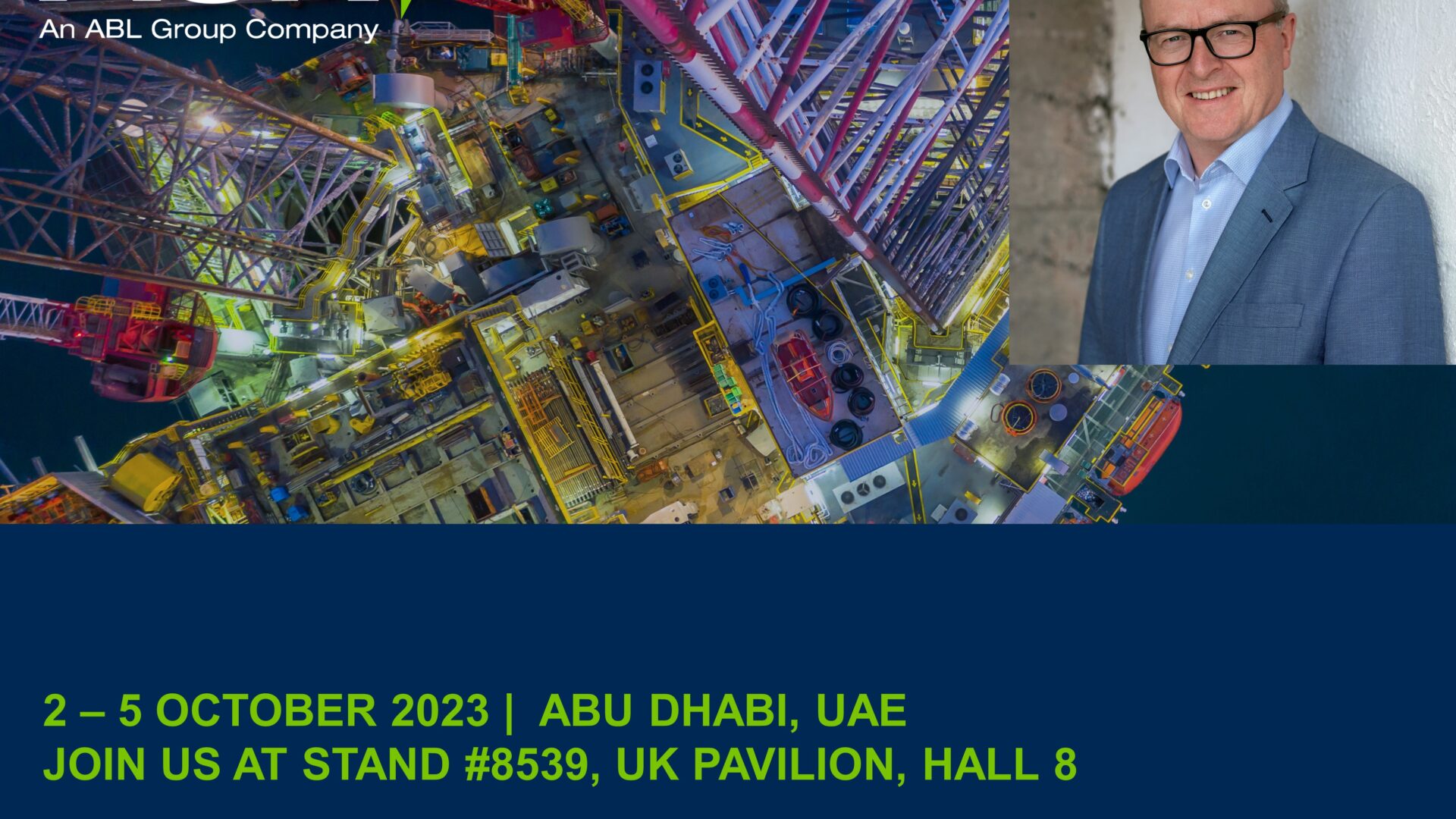As we are approaching ADIPEC 2023, our experts in wells and subsurface take time to delve on opportunities and possibilities that help fuel carbon storage rise in the Middle East.
Scheduled for October 2 to 5, 2023, this year’s focus in Abu Dhabi revolves around “Decarbonising. Faster. Together.” During this event, we will collaborate with our parent company, ABL Group, to enlighten organisations on executing projects that help them transition towards low carbon energy while maintaining their internal resources and operations intact.
As our industry evolves towards low carbon energy future, Carbon Capture and Carbon Storage (CCS) has become a key focus in the transition models and will play a big role.
To offer a glimpse into our proficiency in this field, Ole Rygg, ABL Group Managing Director – Wells, provides further insight into our approach to this specialised area.
Capitalising on AGR’s expertise in well engineering and drilling operations, how can AGR clients benefit from it when developing CCS projects in the Middle East?
We have two concepts that we look at, both of which will be adapted to the specific project once assessed.
The first concept is about repurposing existing infrastructure or assets that are no longer commercial and ready to be decommissioned. We work with the client by providing a feasibility assessment for the disposal of carbon and present this as an ‘asset life extension opportunity’.
For this approach, there are multiple aspects to consider, primarily looking at the wells and if the asset can be converted from a production facility to a carbon sequestration injection facility, ensuring our processes and procedures assess and communicate both risks and opportunities to consider. Building on the internal know-how within AGR’s Reservoir and Subsurface team, we are capable of providing enhanced geological, reservoir engineering and well assessment.
You can read an example of a feasibility study with well analysis we completed here.
With the second concept, we’re taking carbon away from a client. We’ll manage a vessel that collects the excess carbon produced from separated gas at LNG plants and this is injected into the reservoir via wells designed and drilled offshore for CCS purposes.
As part of CarbonNet project, AGR was appointed to deliver a potential CO2 storage well on behalf of the Victorian Government in addition to undertaking the Geophysical, 2D seismic and Geotechnical assessment prior to the Operation’s start.
How do you advise clients when they evaluate repurposing wells and production facilities for CO2 injection?
Ageing production facilities and subsurface installations possess inherent qualities that make them well-suited for CO2 injection. One of the key advantages is the presence of drilled wells and knowledge about what’s under the surface. This provides access to subsurface formations suitable for carbon storage thereby utilizing the subsurface storage capacity that already exists. This approach may also offer a time and cost-effective and expedited solution compared to constructing entirely new storage sites.
Offshore facilities are designed with stringent safety protocols and regulatory compliance in mind. The expertise and experience developed in the offshore industry over years, such as reservoir engineering, well integrity management, and monitoring techniques, directly translate to the requirements of carbon storage operations. The existing knowledge combined with re skilling of today’s petroleum engineers ensures that workforce and repurposed offshore facilities maintain the highest standards of safety and operational excellence.
The safe operation of CO2 injection wells is of paramount importance. We provided Well Integrity and well control evaluation on one of the world’s largest CO2 storage project in Australia. More than 7 million tonnes to date of CO2 have been injected and more than 100 million tonnes of CO2 expected to be mitigated over the life of the CCS system.
What can delegates expect from AGR’s Well Engineering & Drilling team at ADIPEC 2023?
“We’re going to share our well and drilling knowledge using tangible CCS project examples and show how it can add significant value to organisations’ operations. A lot of people tend to believe that because carbon storage is a green solution, it can’t have anything to do with oil and gas. We disagree with that and we’re looking to use ADIPEC as a way to help educate on this subject.
“If you’re dealing with wells and facilities that were originally built for oil and gas exploration, you need to have the same awareness of understanding integrity and safety. The years of experience in this field is integral as we enter renewable pathways through decarbonization of the asset to ensure it is done safely and correctly.”
What are your main aims while at ADIPEC?
“We want to showcase our expertise in Well Engineering and CCS area and show how, even if you don’t have the internal resources in place, as an external energy consultancy, we can manage the entire subsurface and well design side of CO2 injection project so you’re working towards your energy transition targets yet not delaying your ongoing operational activity in other areas.
“Attending this large-scale event is a great opportunity to start a relationship where we can go on to provide a gap analysis, highlighting project risks and provide a CCS project framework. It’s also a way for operators to determine the investment potential of their assets.
“Ultimately, as a bespoke drilling engineering group, we want to raise awareness of the many ways current oil and gas assets can be repurposed and how companies can deal with excess carbon, for example for enhanced oil recovery (EOR) or CO2 injection.
Ole Rygg will be presenting at this year’s ADIPEC event with a focus on assessing the integrity of mature fields and the opportunity to repurpose assets for CCS opportunities.


